Published
- 07:00 am

The year 2021 was packed with exciting developments and meaningful circumstances in world affairs—its economy, politics, and policies—impacting the financial sector as a whole. With the help of its analytics team, the international Forex broker OctaFX compiled a basic rundown to deliver some of the more critical, vital events which it deemed especially important.
The U.S. dollar's tumultuous journey through quantitative easing (QE)
During the COVID-19 crisis, the U.S. Federal Reserve (Fed) and the European Central Bank (ECB)—the central banks that issue the world's reserve currencies—flooded the financial markets with new money. The official reason stated was helping the suffering economy because of the pandemic.
Therefore, U.S. president Joe Biden's proposal of a 1.9 trillion USD stimulus package to Congress arrived on 21 January. The Republican Party was highly sceptical about this approach—some congressmen even recalled the already worrying, continual growth of the national debt (a mass total of 21.6 trillion USD at the time). It is a long-term development whose lack of resolution as of yet does not shake the market's firm belief in the reliability of the U.S. dollar.
Biden follows suit by signing stimulus plan
Fast forward two months, the U.S. Senate (6 March) and the U.S. House of Representatives (10 March) both approved the stimulus plan before Biden signed it on 11 March as a 1.9 trillion USD economic rescue package. Far from being a bipartisan undertaking, no Republican approved the new order. Although, the document was amended, for example, the clause on raising the minimum wage was removed. New money flooding the market like this filled most market participants with a bullish sentiment.
Another 1.2 trillion USD for 'infrastructure spending plan'
Towards the end of June 2021, expectations for a tight monetary policy were running high but then the U.S. Senate agreed on and approved a new 'infrastructure spending plan', totalling another 1.2 trillion USD. The reason was a sharp increase in inflation in the months prior to June.
Both institutions—the Fed and the ECB—have kept rates at zero or negative and implemented quantitative easing (QE) throughout 2021, increasing their balance sheets and buying bonds with that money. Because of this, their yields fell, which encouraged investors to put capital into companies' stocks and look for other projects.
Fed announces the end of bailout measures
In September, the U.S. Federal Reserve officially declared that it is ready to end its quantitative easing programme and may raise the base rate already from 2022 rather than 2023, as previously assumed. The Fed further added it would continue to buy 120 billion USD worth of assets each month for the time being: 80 billion USD in treasuries and 40 billion USD in mortgage-backed bonds.
The regulator's rhetoric initially spooked investors, but overseas markets moved higher on 23 September. The American S&P 500 was recovering from a marginal fall and rose by 1%. Finally, the U.S. monetary regulator started winding down asset purchases from the market to 105 billion USD in November (from 120 billion USD previously) and to 90 billion USD in December—strong signals for the market that the economy starts to revitalise itself.
Bitcoin reaches historic ATH in April before falling again by 53%
The whole of April, the crypto industry radiated with enthusiasm over an ongoing bull market before bitcoin—surprisingly to most—started a steep correction from a historical all-time high of 63,500 USD (13 April 2021) to 34,600 USD (29 May 2021). In those first initial waves downward, due to triggered margin calls, around 8 billion USD in position liquidations took place. This process had put most of the trading community on a new kind of alertness.
This downtrend continued up to 20 July 2021, reaching a price of 29,600 USD per bitcoin (that's over 53% from the previous all-time high). Only after that point did an uptrend start with a late-summer high of 52,600 USD (6 September 2021). Most were sure the bottom for bitcoin back then had been hit and more frequent but careful trading resumed during that time.
Ethereum stays strong but stable while bitcoin tops twice more
Six weeks later, the mother of all cryptocurrencies topped off its previous all-time high twice in close succession—65,990 USD (20 October 2021) and 67,500 USD (8 November 2021), vindicating a suspected bull market across market observers, retail investors, and legacy institutions once again. All the while, the altcoin market soldiered on with a fluctuating performance, seeing Ethereum's persistence and some success stories such as the Solana smart-contract platform. The latter rose from 1.84 USD on 1 January to its all-time high of 258.93 USD on 6 November, gaining 13,972%. Many opportunities for lucrative trades and initial long-term investments were realised. At the same time, some solid altcoin projects stagnated during this period, only showing that their turn for growth has yet to come.
U.S. and E.U. prioritise the basic materials sector
In autumn, the E.U. and the U.S. have agreed to suspend duties on steel and aluminium products. During a speech, the President of the European Commission, Ursula von der Leyen, stressed that her institution planned to develop proposals to suspend duties imposed on goods from the U.S. She elaborated that this would bring trade in steel and aluminium products back to their levels before these tariffs were imposed in 2018.
U.S. President Joe Biden reiterated the intentions of the European Union and the United States jointly committing to a carbon-based agreement on steel and aluminium trade. After President Trump's era of 'economic isolationism', many investors in the relevant industries understood this development as a bullish long-term sign.
European Union at a crossroads
In 2021's fourth quarter, the euro fell to its lowest value since the start of July 2020. The reason for the plunge was the worsening business climate in the E.U.
In Germany, supply problems within most industries have worsened. Berlin, as the fourth-biggest economy in the world, also inaugurated its new government in December. One important aim of the new coalition is to introduce a wide variety of new taxes on secondary homeownership and carbon emissions on all levels, be it corporate or private. Germany is a major player in the European Union's power dynamics structure. Its new government in Berlin will have much to say about the way onwards in terms of the continent's financial and political development.
What the future holds
As Powell hinted throughout the year, in January 2022 there will be a monthly quantitative easing cap of 60 billion USD, halving the 2021 rate and initiating a probable and gradual farewell to the emergency policy. A process that market participants of all shapes and sizes (private and corporate) will have to pay close attention to.
All of the dynamics above will have exciting new developments in 2022 and the years after—many of which will hit most by surprise. So, financial education and constant research and training towards economic and financial literacy are paramount to navigating through these fast-paced markets. This plain truth applies just as much to Foreign Exchange as it does to the stock market or the cryptocurrency domain.
Related News
- 02:00 am

Focused on European warehouses, Elite Logistics Fund I benefited from a significant increase in investor demand for logistics and e-commerce assets
A European logistics real estate fund managed by the Singapore-regulated Elite Partners Capital has completed a EUR 520-million sale of its entire portfolio to a fund managed by the US private equity firm Blackstone Group. Launched in early 2020, Elite Logistics Fund I is a two-year, closed-end fund listed on the private market exchange ADDX. With its sale of all 18 properties to Blackstone, the fund by Elite has achieved annualised returns more than double its 12% per annum target.
Individual accredited investors on ADDX had subscribed to the Elite fund in two separate offerings in June and December 2020. Fund units were tokenised by ADDX, and the efficiency of blockchain and smart contracts allowed ADDX to reduce the minimum investment size as set by Elite, to EUR 20,000 from EUR 1 million. ADDX investors have received 98% of the proceeds from the sale to Blackstone. The remaining funds will be distributed after the fund is formally concluded later this year.
The Elite fund was invested in mature, income-producing logistics warehouses in the UK, Poland, Germany, Czech Republic and Spain. Tenants consisted of large multinational corporations such as DHL, Pepsi, FM Logistics, Fiege, Havi Logistics and Next.
Enoch Tan, Portfolio Director of Elite Logistics Fund I, said that with the pandemic, the demand for space in logistics and e-commerce facilities skyrocketed, as supply chain disruptions prompted companies to increase inventory levels for food, essential goods and other consumer products, to ensure they could meet demand consistently. The high-tech facilities at the cargo terminal at Prague airport were also involved in vaccine storage and delivery.
He said: “Our investment approach focused on well-performing logistics real estate in developed European markets. Even prior to the pandemic, we were bullish about logistics because of the broader expansion of the e-commerce industry and new demand for space in the UK arising from Brexit. This strategy paid off, as we acquired assets which were fully tenanted and achieved 100% rent collection throughout the pandemic. In contrast, rent collection for retail and office space plummeted to under 50% across Europe. In the past two years, the rate of rental collection became one of the key performance matrices for real estate investments, and because of this, logistics assets were highly sought after due to their consistently low rates of rental delays and defaults.”
The travel restrictions that began in early 2020 posed a challenge to real estate transactions in the early phase of the fund, when it was procuring warehouses. This was mitigated by two factors, noted Tan. First, the fund manager had viewed a large number of the properties physically by the end of 2019, before travel to Europe became difficult. Second, notwithstanding that Elite had full-time employees based in the UK and Europe, it was able to rely on strategic partner Macquarie Capital Principal Finance, which was also a key investor in the fund, to follow up in person on transactions, as Macquarie had a network of offices and employees in Europe. The Singapore-based members of the fund manager had to follow site visits and meetings with tenants by way of Zoom, which was a novel method of real estate assessment made necessary by the pandemic.
According to Prologis Research, the global e-commerce penetration rate is projected to rise to over 25% in 2025, from around 15% in 2019.
As the pandemic wore on, wealth portfolios globally were rebalanced in favour of logistics real estate. Investor demand for assets rose significantly, leading to improved valuations and contributing to the higher-than-anticipated returns by Elite Logistics Fund I, Tan said.
He added: “As we approached the end of the fund’s two-year mandate, we considered all possible options, including an IPO for the fund, which would allow Logistics Fund I to follow in the footsteps of its sister company Elite Commercial REIT which completed its IPO in February 2020. Following a thorough assessment, we concluded that the private sale to Blackstone yielded the highest returns to investors, which made it the most attractive option.”
ADDX Chief Commercial Officer Oi-Yee Choo said: “Private real estate funds continue to look compelling in the current market, offering an income play along with the potential for asset appreciation. Investor demand for real estate offerings has therefore been robust over the past year, especially when they involve the logistics sector.”
She added: “The stellar performance of this fund also underscores the importance of investing with experienced, high-quality asset managers like Elite, who are equipped with a well-thought-out investment strategy as well as a proven ability to execute on it. The case for investing in a fund also becomes stronger when there is a strategic limited partner (LP) investor with global reach, such as Macquarie in the case of this fund.”
Elite is an alternative asset management company with more than SGD 1 billion of assets under management. Among the portfolios Elite has assembled is Elite Commercial REIT, which is currently listed on the Singapore Exchange.
Related News
- 06:00 am
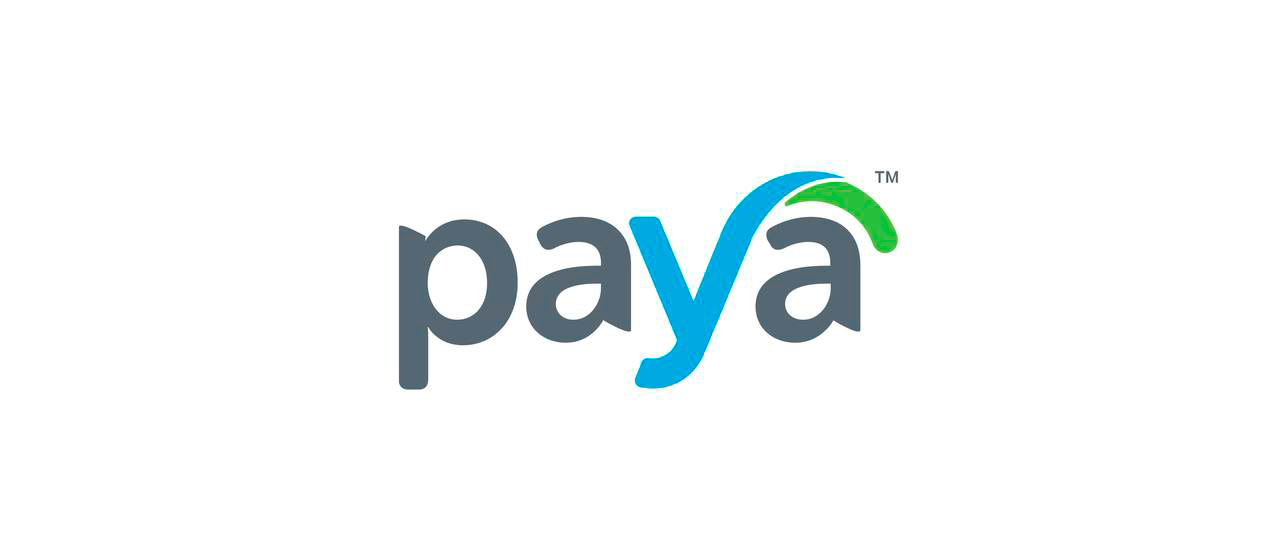
Paya Holdings Inc. , a leading integrated payments and commerce solution provider, today announced the acquisition of VelocIT Business Solutions (“VelocIT”).
Founded in 2018 and based in Clarkson, WA, VelocIT provides fully integrated, omnichannel payment solutions to accounting and ERP partners, including Acumatica and Sage, driving frictionless commerce experiences for their end users. VelocIT brings to Paya industry-leading technologies, deep knowledge of the ERP market, and strong integration experience and expertise.
“We are excited to welcome the VelocIT team to Paya as we look to expand and accelerate Paya’s growth within the ERP channel,” said Jeff Hack, Paya’s chief executive officer. “VelocIT brings a great roster of ERP partners, leading technological capabilities, and key talent which will enrich the value of our offerings while providing for continued growth within B2B and across key verticals we serve.”
Through the acquisition of VelocIT, Paya will accelerate its product roadmap, scaling the company’s solution capabilities and extending its leadership in accounting and ERP integrations.
“Paya is committed to delivering innovative, integrated payment solutions and driving exceptional commerce experiences,” said Michele Shepard, Paya’s chief commercial officer. “With their technology platform, partnerships, and ERP domain expertise, the acquisition of VelocIT strengthens Paya’s ability to fulfill that commitment.”
“We are thrilled to join the Paya family,” said Jeremy Burt, CEO of VelocIT. “Paya is a highly regarded leader in the payments market and in the ERP space in particular, and joining forces with Paya will enable us to scale our R&D efforts and distribution to entirely new levels. We look forward to the next chapter in the VelocIT journey.”
Paya expects to discuss the transaction further on its fourth quarter and full year 2021 results conference call.
Note Regarding Forward-Looking Statements
Certain statements made in this press release are "forward looking statements" within the meaning of the "safe harbor" provisions of the United States Private Securities Litigation Reform Act of 1995. When used in this press release, the words “anticipate,” “believe,” “continue,” “could,” “estimate,” “expect,” “intend,” “may,” “might,” “plan,” “possible,” “potential,” “predict,” “project,” “should,” “would,” “will,” “approximately,” “shall” and similar expressions may identify forward-looking statements, but the absence of these words does not mean that a statement is not forward-looking. These forward-looking statements are not guarantees of future performance, conditions or results, and involve a number of known and unknown risks, uncertainties, assumptions and other important factors, many of which are outside our control, that could cause actual results or outcomes to differ materially from those discussed in the forward-looking statements. Forward-looking statements in this press release may include, for example, statements about benefits to be obtained from the acquisition of VelocIT, our expansion and acceleration within the ERP channel, our continued growth within B2B and across key verticals, acceleration of our product roadmap, expectations for future financial performance, and our future growth and business strategies.
The forward-looking statements contained in this press release are based on our current expectations and beliefs concerning future developments and their potential effects on us. You should not place undue reliance on such statements as we cannot assure you that future developments affecting us will be those that we have anticipated. These forward-looking statements involve a number of risks, uncertainties (some of which are beyond our control) or other assumptions that may cause actual results or performance to be materially different from those expressed or implied by these forward-looking statements. Some factors that could cause actual results to differ include, but are not limited to: our inability to obtain the expected benefits from the acquisition of VelocIT or any other business or assets we have acquired or may acquire in the future; our inability to integrate VelocIT in our operations; exposure to economic conditions and political risk affecting the consumer loan market and consumer and commercial spending; the impacts of the ongoing COVID-19 coronavirus pandemic (including supply chain constraints, labor shortages and inflationary pressure) and the actions taken to control or mitigate its spread (which impacts are highly uncertain and cannot be reasonably estimated or predicted at this time); competition; the ability of our business to grow and manage growth profitably; changes in applicable laws or regulations; changes in the payment processing market in which Paya competes, including with respect to its competitive landscape, technology evolution or regulatory changes; changes in the vertical markets that Paya targets; risks relating to Paya’s relationships within the payment ecosystem; risk that Paya may not be able to execute its growth strategies, including identifying and executing acquisitions; risks relating to data security; changes in accounting policies applicable to Paya; the risk that Paya may not be able to develop and maintain effective internal controls and other risks and uncertainties; and other risks and uncertainties discussed in our filings with the Securities and Exchange Commission.
We undertake no obligation to update or revise any forward-looking statements, whether as a result of new information, future events or otherwise, except as may be required under applicable securities laws.
Related News
- 07:00 am
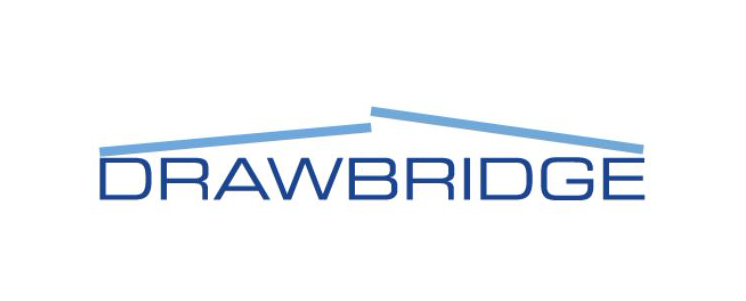
Global Cybersecurity Leaders Also Launch Office of Diversity, Equity and Inclusion (DEI) to Advance Corporate Culture and Career Advancement
Drawbridge, a premier provider of cybersecurity software and solutions to the alternative investment industry, today announced significant senior appointments as it builds on the company’s record-breaking success in 2021. The promotions and new hire cover the business-critical areas of software development, client success and diversity, equity and inclusion (DEI), and will enable Drawbridge to accelerate its ongoing investment in product innovation, customer service and employee development.
Cyber and information security is at the top of the list of planned investments for CIOs in the next year, with 66% of respondents in a recent survey reporting they expect to increase associated investments in 2022.1 Following a year that saw Drawbridge record triple digit growth in revenue, clients and headcount, the company is committing new resources to support its burgeoning global client base, fast track product development and meet dynamic industry and market requirements for advanced cybersecurity products and services.
“2021 saw historic growth for Drawbridge, and that would not have been possible without our amazing clients and dedicated team. As cybersecurity again tops the list of priorities for business and technology leaders in 2022, this is not a time to become complacent,” said Jason Elmer, Founder and CEO, Drawbridge. “Drawbridge continues to invest in our team and our technology as we work to expand our product portfolio, introduce new offerings and extend the white-glove service our clients have come to expect from us. These new senior appointments reflect that commitment and will be integral to Drawbridge’s sustained growth in 2022.”
The appointments include:
- Bill Waters, Global Head of Software Development. Waters joins Drawbridge to drive the complete software development life cycle and launch new products that will add to the company’s award-winning technology stack. He brings 25 years of experience directing technology innovation and building high-performance software teams to his role at Drawbridge, including his position as Director of Development at Broadway Technology. He has held multiple senior technology roles throughout his career, including Director of Software at Sandvine and Co-founder and VP, Engineering at Simplicita Software, where he led the company through two sales, a spinoff from Sandvine and a rebrand to Xerocole prior to its acquisition by Akamai.
- Jacob Cane, Global Head of Strategy and Client Success. Previously Head of Strategy at Drawbridge, Cane will leverage his long history building world class client service organizations as he expands his responsibilities at Drawbridge. Cane will focus on managing global client engagement, enhancing customer experience and driving measurable success for Drawbridge’s global client base. Prior to his role at Drawbridge, Cane was Founder and Managing Director of Proactive Technologies, which served alternative investment clients and was acquired in 2019.
- Darrell Tucker, Head of Diversity, Equity and Inclusion (DEI). Formerly Head of Client Success at Drawbridge, Tucker will design, build and lead the newly created Office of DEI to cement Drawbridge’s position as a destination of choice for top talent looking for long-term opportunities with an inclusive, nurturing employer. A passionate advocate for diversity hiring and development throughout his career, Tucker will partner with Drawbridge’s Human Resources team and hiring managers to ensure the company promotes an inclusive culture and attracts team members from the broadest possible talent pool.
Elmer continued, “Our incredibly talented team has been the cornerstone of Drawbridge’s success since our launch and is what enables us to deliver our market-defining software products and services and exceptional customer experiences. We are committed to recruiting, retaining and developing diverse talent as we continue our rapid growth by creating an open environment that fosters collaboration, performance and shared success. Formalizing our Office of Diversity, Equity and Inclusion will enable us to provide a workplace that offers flexibility, focused career paths and rewards the passion our Drawbridge employees continuously display for their work.”
2021 was a milestone year for the Drawbridge team. The company began the year by securing a growth equity investment from Long Ridge Equity Partners and has rolled out multiple new offerings. Drawbridge also invested in key industry talent throughout the year, appointing industry titan Edna Conway - a sought-after cybersecurity industry influencer and Security & Risk Officer for Microsoft Azure - to its Board of Directors. Drawbridge also named fintech industry pioneer Scott DePetris President & Chief Operating Officer (COO) as well as a member of the Board of Directors, and appointed Thomas Fallucco Chief Revenue Officer (CRO). Throughout 2021 Drawbridge’s software and services innovation were recognized by clients and the broader industry, including being named ‘Best Cyber Security Provider’ at the 2021 Private Equity Wire US Awards, ‘Best Cyber Security Firm’ at the 2021 Alt Credit European Performance & Services Awards and ‘Best Cyber-Security Solution’ at the 2021 HFM European Quant Services Awards.
Related News
- 07:00 am

BENKER is to become the first officially licensed blockchain neobank launched in Europe following approval by the Bank of Lithuania under the Electronic Money Institution (EMI) category. Now open for pre-registration, it is the first financial services provider in the European Union to operate entirely on blockchain.
The neobank will run on Natrix, a purpose-built hybrid blockchain created for the financial sector to meet all GDPR, bank secrecy and regulatory requirements. BENKER will achieve the highest level of Compliant Client Autonomy, where users have complete control, autonomy and real freedom, assuring sustainability of the market where users and financial market participants are on the same level.
Viktor Bodnár, CEO of BENKER, hopes that the neobank will be a catalyst for fundamental transformation in personal finances, offering customers greater autonomy. On his vision for the future of the market, he said:
“We’re introducing a new brand in financial services that can challenge the established order by extending existing legal and regulatory safeguards with the advanced technology-based guarantees achieved through blockchain. In obtaining our EMI licence we have been allowed to radically diminish client exposure to the actors of financial markets, and I see this as a move towards the ‘New World Order’.”
“By adding blockchain to the way in which customer accounts are managed securely, we are offering constant transparency, traceability and complete control over financial matters for our clients, creating the highest level of freedom. This is what we’re calling Compliant Client Autonomy and it’s an idea that is at the heart of BENKER.”
Following a two-year planning, development and application phase, and now with its EMI licences receiving full approval, the neobank will offer services for both individuals and SMEs, and a platform on which to buy and sell gold.
Bodnár finished:
“We’ve worked hard to create a fully compliant and secure blockchain neobank, and I’m delighted that it is now going live in 2022. The result is a system in which clients and service providers are finally on the same level, and within all legal and regulatory requirements. This will make managing personal finances in the future more efficient than ever.”
For more information, visit www.benker.io.
Related News
- 09:00 am
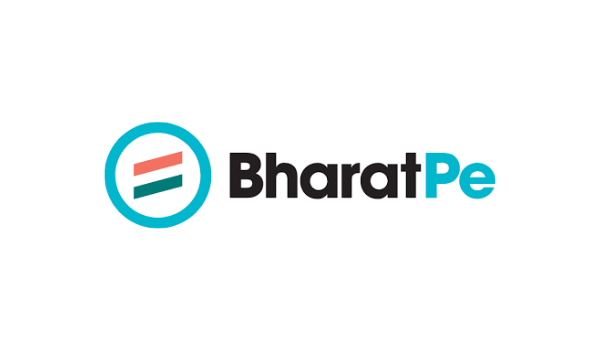
- Targets Rs. 24,000 crores in TPV run-rate by end of 2022
- BharatPe’s Buy Now Pay Later records 1.8 Mn downloads in 90 days
- 300,000 individuals utilized interest free credit in the first quarter
BharatPe, one of India’s fastest growing fintech companies, today announced that its recently launched ‘Buy Now Pay Later’ product, ‘postpe’, has been a runaway success. ‘postpe’ emerged as one of the fastest growing products in the BNPL industry, with an annualized TPV of Rs. 2,400 crores in just 3 months of its launch. The company shared that ‘postpe’ is now a formidable player in the extremely competitive BNPL space, having facilitated disbursals to 300,000 consumers in the first quarter of its launch. The company also shared that it has extended a credit line of Rs. 1,000 crores, in partnership with its lending partners. BharatPe shared that postpe is expected to grow 2X in the last quarter of the financial year and the company is targeting closing the last quarter of FY22 with an annualized TPV of Rs. 4,500 crores.
BharatPe launched postpe in Oct 2021 at the ICC T20 Cricket World Cup in Dubai, where postpe was the Global Sponsor. The app has received an overwhelming response over the last 90 days and currently has 1.8 Mn downloads and 1.5 Mn registered users. The company offers interest-free credit limit of up to Rs. 10 Lakhs to its customers. It is the first BNPL product to offer universal usage - on QR, card and online. Customers can choose to pay by scanning QR at BharatPe merchant outlets or pay via VISA card for POS and online transactions. Customers can also take money into their bank or send to other postpe customers using the ‘send money’ feature. Additionally, customers can enjoy a host of discounts and offers when using postpe across popular online platforms across industries, including Swiggy, BookMyShow, Pharmeasy, Tata Cliq and, EazyDiner.
Speaking on the milestone, Suhail Sameer, Chief Executive Officer, BharatPe said on the launch, “The idea behind postpe was simple - to make EMI and credit available for everyday purchases made by a customer, irrespective of the ticket size. As against a few organized retail outlets where BNPL was available traditionally, we started out with offering postpe at our 80 Lakh plus merchant outlets. Over the last 3 months, we have been able to facilitate credit to 3 Lakh plus customers and are hoping to touch 8 Lakh customers by March. We had initially set a target of facilitating a loan book of Rs 2,000 crores on postpe in the first 12 months, for our lending partners. However, we have already surpassed this milestone and are now targeting annualized TPV of Rs. 24,000 crores by end of 2022.”
Added Nehul Malhotra, Head- Consumer Lending, BharatPe, “postpe is the youngest but one of the biggest success stories in BNPL space. In just one quarter, we have been able to emerge as a dominating player in the cluttered BNPL category through a very simple yet powerful proposition. Our media campaign of ‘de dena aaram se’ has become the anthem for BNPL and made us a household name. Both iPhone and Gol Gappa on emi is our motto. Send money and ability to pay on BharatPe QRs is our biggest differentiating advantage.”
postpe is a truly digital product that empowers the customers to shop across offline as well as online merchants, and repay easily through EMIs. Customers can simply open the postpe app, scan QR code and pay using postpe credit at merchant outlets. The sign up and limit assignment is done in a record 60 seconds. postpe was the Global Sponsor of ICC T20 World Cup that was held in Dubai last year.
In August last year, BharatPe announced its entry into consumer Fintech with the launch of 12% Club. The app is available on Google Play Store and Apple App Store. With 12% Club, consumers have an option to invest and earn up to 12% annual interest or borrow at a competitive interest rate of 12%. BharatPe has partnered with RBI approved P2P NBFCs to offer this investment-cum-borrowing product to its customers.
Related News
- 02:00 am
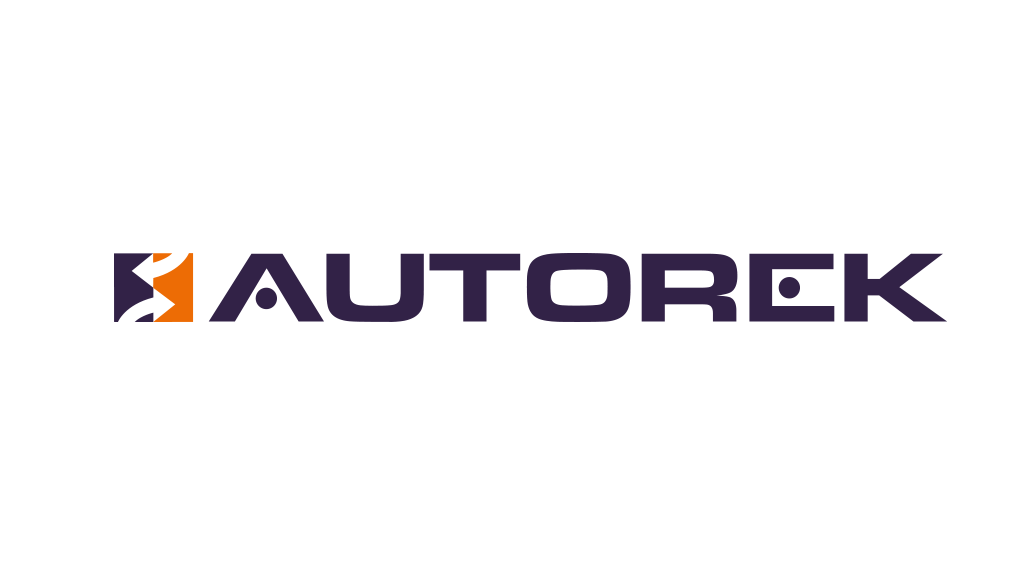
A new report from leaders in reconciliation and finance automation software, AutoRek, has found widespread concerns around the ability of businesses to grow amidst scalability and regulatory pressures over the next three years, affecting 92% of professionals surveyed.
The report – Banking and Payments in 2022: Digital transformation and trends in financial technology – was designed to create an instructive picture of the key challenges and solutions facing the financial industry as it enters 2022.
AutoRek gathered insights from senior professionals across the banking and payments industry on the barriers they face surrounding the handling of payments data, compliance and growth, and new technologies in use or consideration.
Automation was found to be a key source of hope for enabling growth and regaining competitive advantage. Other key findings include:
- Manual processes form the biggest roadblock to achieving automation, cited by 46% of firms, followed by legacy systems (42%), poor interoperability (40%) and regulatory requirements (38%).
- In-house IT solutions are the most common for data handling across payment operations, used by 44% of firms – a higher reliance on in-house systems than in most other sectors.
- Almost one-third of firms consider their jurisdiction’s regulatory body audit and control around regulatory reporting infrastructure somewhat or far too strict, while 22% consider it somewhat or far too lax. Just under half consider it appropriate. Financial institutions in central and south America were considerably more likely to view their regulators as lax than their European and Asia-Pacific counterparts.
- When selecting a solution to handle payments data, almost 80% of respondents consider its ability to integrate easily with existing infrastructure a key factor.
- Over half of respondents (56%) either already have or are in the process of deploying modern technologies such as artificial intelligence (AI), machine learning (ML) and application programming interfaces (APIs) to help monitor and streamline their data management processes. One-third had onboarding planned in the next 12-24 months. Only 12% reported having no plans to apply technology to improve data management processes.
Firms slow to adopt emerging technologies should be aware that they are now falling behind in an increasingly automated and competitive landscape, according to Nick Botha, Banking Lead at AutoRek.
Commenting on the findings of the report, Nick Botha continued:
“While automating data flow has been a priority for some years now, this survey makes clear how many inefficiencies continue to plague firm’s day-to-day operations when it comes to data processing and reconciliation. Legacy banks in particular are grappling with often more than 20 disparate systems written in varying generations of software, none of which are designed to interact with one another.”
“While a decade ago that might have flown under the radar, the last few years have seen control of the payments space shift from banks into the hands of Payment Service Providers (PSPs), whose ability to deliver totally user-native customer service is forcing the whole industry to step up.”
“Beyond competing for market share, it’s a question of compliance. The costs associated with non-compliance are substantial both from a financial and reputational perspective, and regulators are increasingly less forgiving, as we have witnessed in the last few months with significant fines incurred by some of the world’s largest banks.”
“New technologies like AI, ML and APIs can be used to create greater interoperability and remove or significantly reduce manual interventions and use of spreadsheets. Investing in these capabilities today will enable firms to address evolving customer preferences, mitigate risk and achieve regulatory compliance down the road – essential elements for remaining competitive in the payments landscape of today.”
Download a copy of the report here.
Related News
- 08:00 am

New capabilities enable ecommerce sites and marketplaces to create seamless onboarding experiences while fighting fraud
Ekata, a global leader in digital identity verification, today expanded its account opening solutions to help online businesses worldwide quickly identify and flag risky account sign-ups. Powered by a proprietary data set and machine learning, Ekata's account opening solutions assess the risk of new accounts in real-time, enabling businesses to create streamlined onboarding experiences for legitimate customers and to reject or add friction to high-risk customers. Ekata’s new capabilities expands its existing account opening solution for financial services and fintech companies.
Increasingly, fraud occurs earlier in the customer journey at the account creation stage, not just during transactions. In the past year alone, more than half of ecommerce companies experienced an increase in promotion abuse, with individuals creating multiple accounts to take advantage of limited-time promotions, causing significant loss to retailers. Marketplaces have also seen more malicious users impacting platform integrity via policy abuse. This type of activity is driving the need for stronger measures to keep those actors off a platform entirely or limit their movement.
According to Ekata’s research, almost one quarter of shoppers abandon their shopping cart because they’re asked to create an account — streamlining the sign-up process is key to combating this figure and onboarding more customers. By only requiring phone or email and an IP address to make a risk assessment, companies can use Ekata’s new solution to maintain low-friction sign-up flows that don’t require customers to enter their name or physical address.
Ekata’s account opening solutions have demonstrated success in helping online businesses catch suspected fraud early and quickly, as well as confidently onboard more verified customers:
- For one ecommerce company that experienced a targeted fraud attack, nearly all fraudulent actors (91%) using email addresses with custom domains were identified during account creation — preventing them from engaging in further fraudulent activity.
- A sizable increase in approval rates (17%) was achieved using Ekata’s account opening solutions.
- One customer captured more than half of true fraud (55%) during the initial step of the sign-up process.
- The new solution returns a response in less than 100ms, which enables real-time risk assessment during account sign-up.
According to Darren Cody, product manager at Bunking, a social marketplace that connects people through flexible shared living stays and travel experiences, “Ekata has been instrumental in helping Bunking proactively finetune our fraud solution to safeguard marketplace trust and safety. With easily provided personal information, we’re able to create different workflows based on risk profiles — eliminating any potential onboarding friction for good customers while protecting our community.”
“Our account opening solutions are hugely successful in helping financial institutions streamline onboarding and prevent fraud during account creation. We’re thrilled to expand these solutions to businesses in the ecommerce and marketplace spaces, especially with account opening fraud on the rise across the globe,” said Jordan Reynolds, VP of Market Strategy, Ecommerce and Marketplaces at Ekata. “Online businesses typically rely on their own internal data to understand the risk of an account, but this takes time and multiple interactions with a customer. Our solution provides risk assessments in real-time, helping businesses onboard more customers at scale and stop fraud in its tracks.”
To learn more, visit the Ekata website at https://ekata.com/products/account-opening-api/.
Related News
- 04:00 am
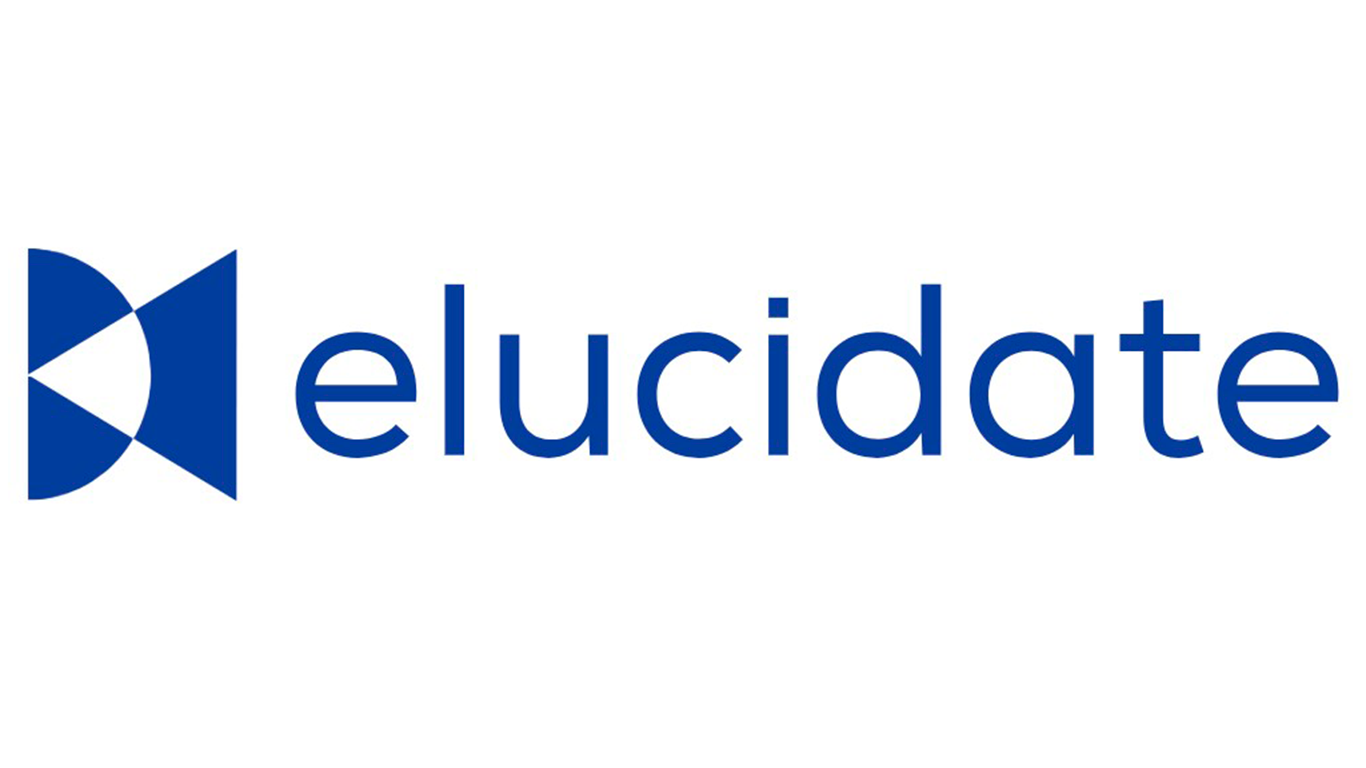
Elucidate, the financial crime risk scoring company, has launched a standardised, transparent product for pricing financial crime risk, which it says will provide fairness and comparability within the market.
Transactions between financial institutions are currently priced by volume, with the associated financial crime risk not bearing any influence on the price of the transactions. Originators of high-risk transactions are therefore not incentivised to improve their financial crime controls, leaving intermediaries to bear the costs of the potential risk.
Elucidate’s product, which was launched this week at the BAFT Europe Bank to Bank Forum (18 to 19 January 2022), aims to reduce financial crime by creating a standardised algorithm that the entire market can adopt, improving transparency between banks and their clients. At the same time, the product creates a shared framework to assess and monitor for improvements to reduce exposure to financial crime. The framework also ensures transactions that pose higher financial risks will be subject to higher fees.
Elucidate worked alongside Standard Chartered Bank to build this framework, which uses machine learning technology coupled with a bank’s own data to create a numerical financial crime risk score. The scores are then applied into a pricing algorithm to determine the price, which is then made clear to both parties in the transaction.
A clear standardisation of financial crime risk provides the financial industry with far greater accuracy in risk decision making, eliminates market inefficiencies, creates more fairness in counterparty interactions, and effectively aligns risk and return.
Founded in 2018, Elucidate has been working to improve financial crime risk transparency. It has created the industry’s only authorised financial crime benchmark, the Elucidate FinCrime Index (EFI), which is regulated by the BaFin (Germany’s Federal Financial Supervisory Authority) and ESMA (European Securities and Markets Authority).
Shane Riedel, CEO and Founder of Elucidate, said:
“We know that banks are spending, on average, around 3% of revenue on managing financial risk. Some banks have even told us that 10% of staff are employed in compliance alone. That’s not sustainable.
“This product will provide financial institutions with a simple way of calculating risk scores, which will be made visible to all parties in a transaction, ultimately providing greater transparency across the market. Crucially, though, it will also allow banks to move away from manual and bespoke assessment of financial crime, which is often time and cost intensive.
"We have several thousand years of market experience showing us that the best way to manage risk is to price it correctly. This applies across the board. The closer we come to allocating the cost of financial crime risk to the point of its origin, the less risk there will be."
Francesco Miccoli, Head of Europe-Americas Correspondent Banking & Head of UK Fintech at SCB, said: “In our view, financial crime risk, like credit risk, should be accurately priced. If a financial institution carries more financial crime risk, the pricing should reflect that.
“We see financial crime risk pricing as a tool to change the commercial calculations within correspondent banking. By deploying data analysis at scale for preliminary and ongoing risk analysis, we can lower respondent acquisition and maintenance costs to a point that more commercial relationships are commercially feasible.”
Related News
- 02:00 am
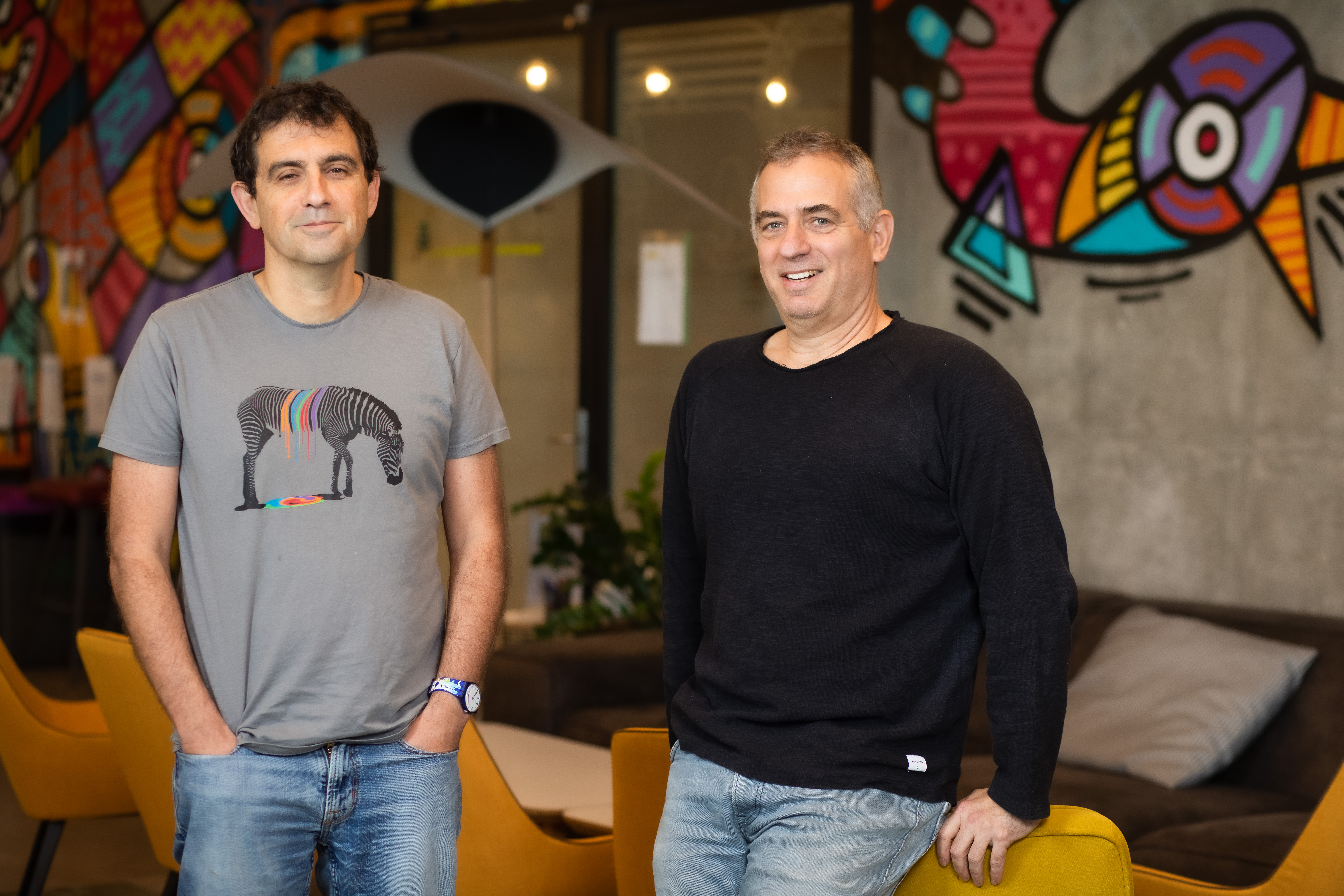
- Over 120 million bank customers are now ‘self-driving’ their finances with Personetics’ Engagement Platform and improving their financial well-being
- Personetics’ Engagement Platform has generated over 6.5bn insights and saved for customers utilizing its business solutions over $500m
- Personetics partners with over 80 financial institutions in 30 global markets
- Personetics’ growth has been driven by its advanced AI analytics and data assets which are adaptive to any market
Personetics, the leading global provider of financial-data-driven personalization and customer engagement solutions for banks and financial services providers, today announced it has raised $85m in growth funding from Thoma Bravo, a leading software investment firm. Personetics secured a total funding of over $160 million in 2021. Personetics is backed by Viola Ventures, Lightspeed Ventures, Sequoia Capital, Nyca Partners and Warburg Pincus.
Operating in a global market worth approximately $15 billion, Personetics’ AI-based engagement platform is becoming a market standard in financial-data-driven personalization, customer engagement and money management for global financial institutions across all channels. Personetics partners with financial institutions to re-invent financial services by integrating automated intelligence into every customer interaction, creating significant business impact in months rather than years.
Personetics’ AI-powered technology is focused on proactive engagement: analyzing financial data in real-time, understanding individuals’ financial behaviors, anticipating their needs and acting on their behalf. Personetics provides day-to-day enriched data, insights, financial advice, and automated wellness programs, tailored to retail banking, small business, wealth management and cardholders. Financial Institutions using Personetics’ AI software see an increase of up to 35% in digital customer engagement, a 20% increase in account and balance growth; and a 17% increase in the adoption of personalized product recommendations and advice.
Personetics strives to actualize a world of ‘self-driving finance’ where financial institutions proactively act on behalf of their customers to increase lifetime value and drive business impact. Combining Personetics’ self-driving finance with open banking/finance will reshape the financial services business model and accelerate engagement with customers.
Flagship clients include many of the worlds leading banks, such as U.S. Bank (US), Huntington Bank (USA), RBC (Canada), BMO (Canada), Intesa Sanpaolo (Italy), Santander (Spain), KBC (Belgium), Metro Bank (UK), UOB (Singapore), Hyundai Card (Korea) and MUFG (Japan).
Financial institutions use Personetics’ agile tools and its low-code Engagement Builder, a Creation & Management Console, to quickly modify hundreds of pre-programmed insights and build customized user journeys to accelerate their innovation. This empowers financial institutions to share real-time personalized insights and advice, as well as automated, self-adjustable financial wellness programs across its customer base which is comprised of individual banking customers, small businesses and wealth management customers.
David Sosna, CEO and Co-Founder of Personetics, said:
“Data-driven personalization and customer engagement is the battleground for financial institutions all over the world. Banks are increasingly moving from a passive to a proactive relationship with customers and are looking for new ways to help them improve their financial well-being. Personetics provides financial institutions with the most comprehensive engagement platform on the market, enabling agility and differentiation with an agile delivery for quick business impact. We are excited to partner with Thoma Bravo, one of the world’s most experienced financial technology investors, to further drive this rapid growth and innovation. Together, we will deliver our vision of ‘self-driving finance’; reaching new partners and clients, while also supporting our existing customers with innovative business solutions that drive business impact.”
Robert Sayle, a Partner at Thoma Bravo, said:
“As the range and complexity of financial products continues to grow, Personetics simplifies and personalizes banking for consumers with its industry-leading AI technology. We are thrilled to partner with Personetics and leverage our operational expertise in software and financial technology to help accelerate the company’s momentum, the introduction of new products and technology, and the platform‘s reach to financial institutions and their customers across the globe.”









